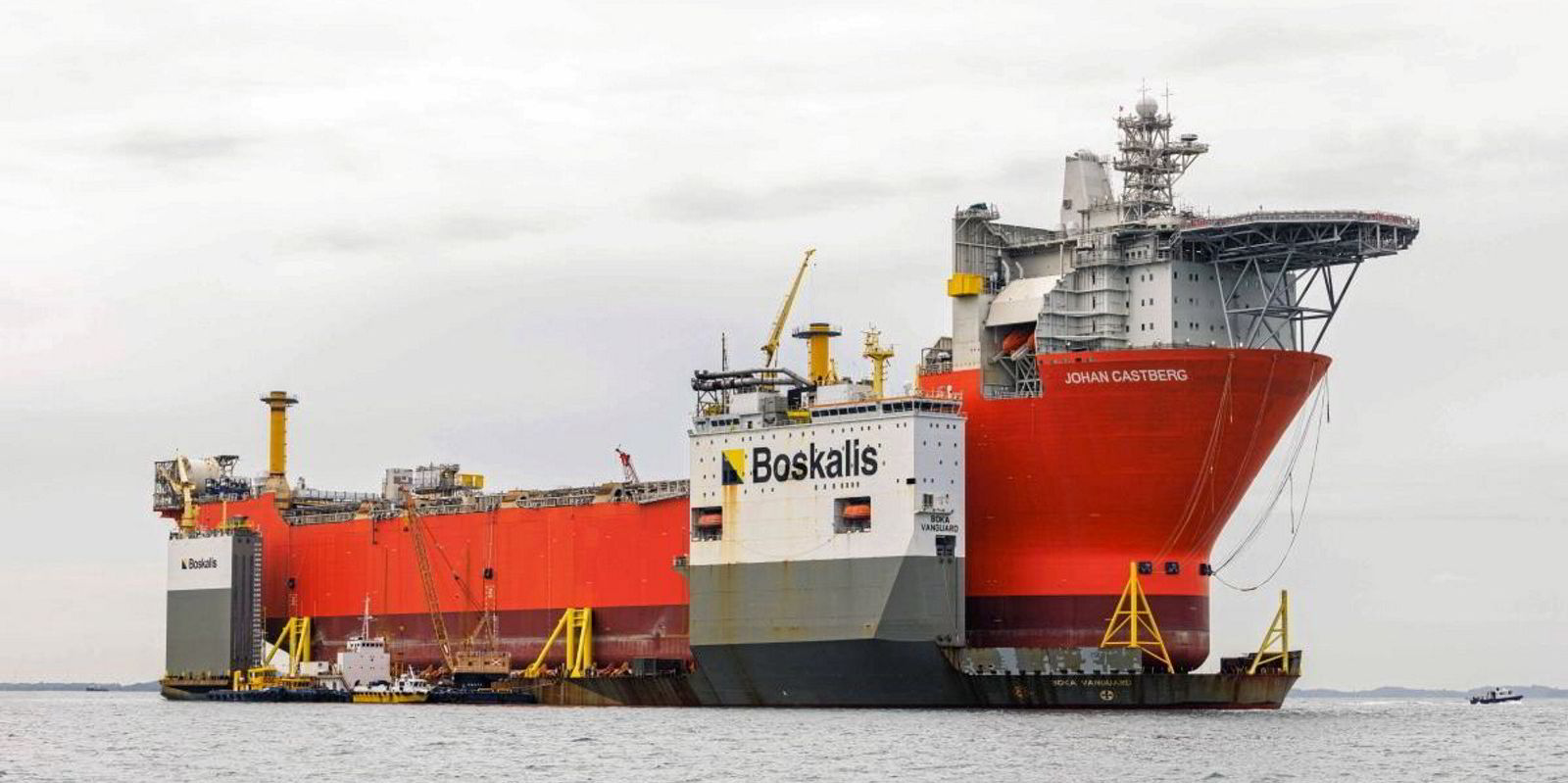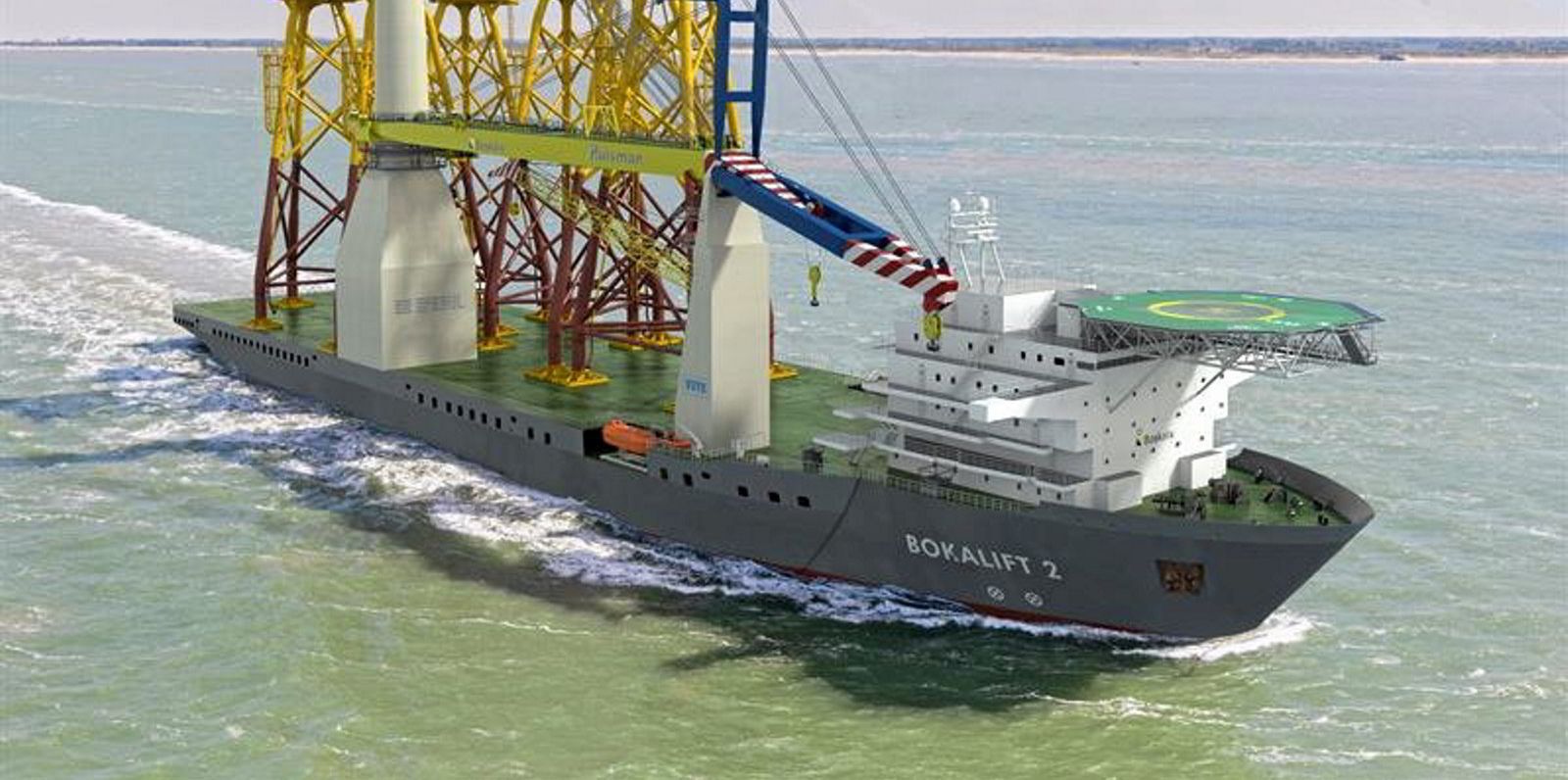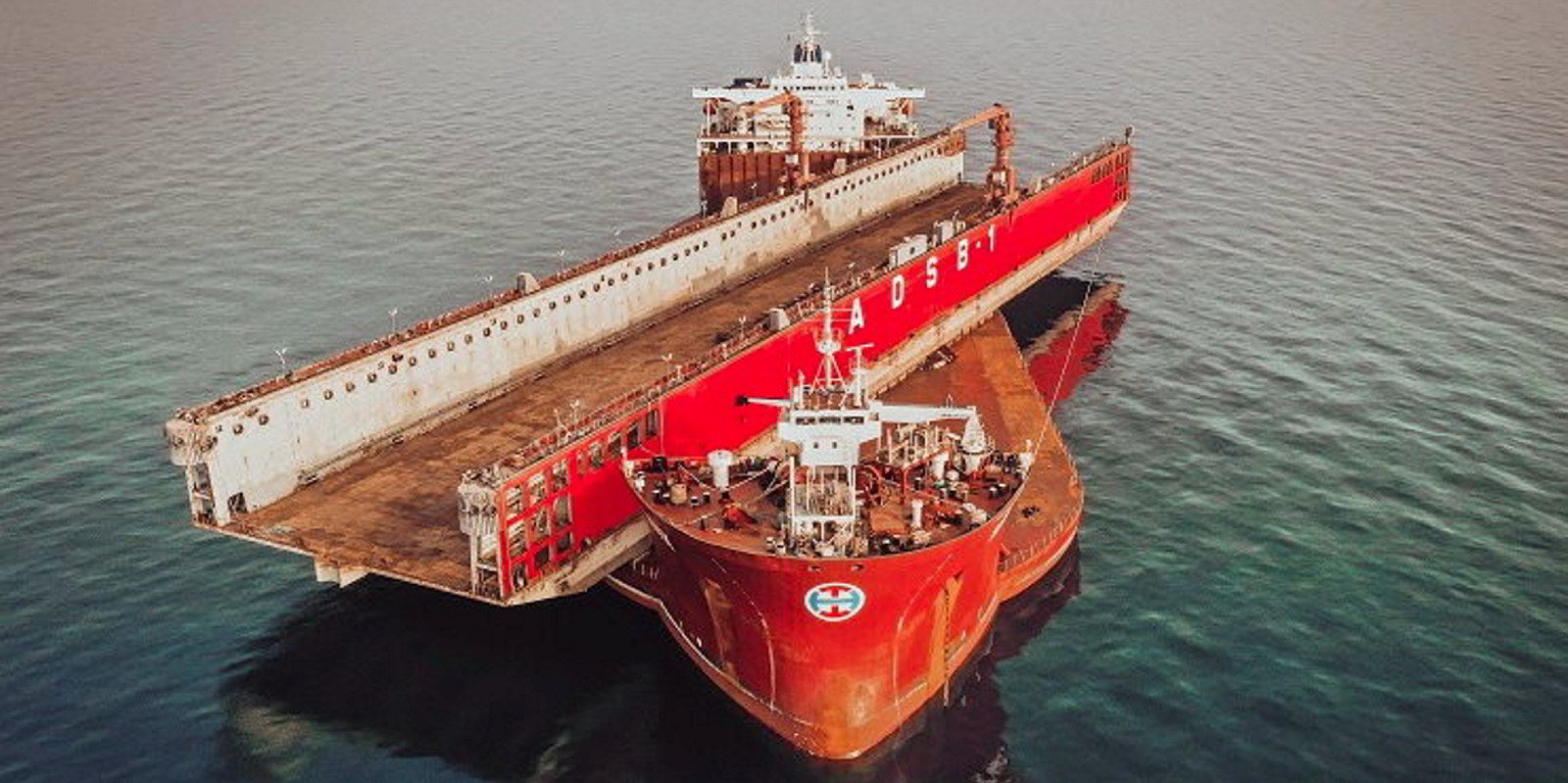The rivalry between local authorities in China may be what spoiled a year-long, 20-voyage industrial transport project, leading to an arbitration claim of some $42m by Dutch heavylift specialist Boskalis.
The debacle has come to light as the result of an arbitration battle. An affiliate of Texas-based contractor Fluor Corp persuaded an International Chamber of Commerce panel that Boskalis bore the lion’s share of the blame for what happened to a programme to ship prefabricated refinery modules from China to Kuwait.
Boskalis did not reply to a request for comment on this story, while a Fluor official said the company had “decided to let the public information you already have speak for itself”.
The arbitration panel issued its 140-page final award last November. Litigation to confirm the award ended this month in the Southern District of Texas federal court, with a settlement of the final questions over arbitration costs.
At the time the project began, Boskalis Offshore Heavy Marine Transport still traded under the name Dockwise. Its customer was a joint venture between Fluor and South Korea’s Daewoo Engineering & Construction and Hyundai Heavy Industries, with a manufacturing base at Zhuhai in southern China’s Guangdong province.
Boskalis’ job was to move 188 prefabricated modules from the COOEC-Fluor Heavy Industries (CFHI) quay in Zhuhai to Kuwait Integrated Petroleum Industries’ refinery project at Mina Al-Zour.
It won the job with a bid that proposed loading each of several rounds of modules onto 10 barges at CFHI, then floating them onto three waiting semi-submersible heavylift ships at the Wanshan anchorage in Zhuhai waters. It would repeat the process until all the modules were in Kuwait.
In meetings with the Zhuhai branch of the Maritime Safety Administration (MSA) and local pilots in 2017, Boskalis officials had been told the anchorage “could provide favourable conditions for float-on, float-off operations”.
However, just before beginning the first round of loading in April 2018, the Zhuhai MSA said the chosen anchorage was closed to foreign-flag vessels.
The costly alternative that had to be adopted was to tow the barges downriver into Hong Kong waters, then tow them back another way into the waters of Zhuhai’s neighbouring city of Guangzhou, where they could be loaded onto Boskalis’ semi-submersible vessels at a different anchorage — some 70 nautical miles (130 km) away from the CFHI loading quay.
In the end, loading for all but six of 20 semi-submersible voyages took place in Hong Kong waters, dispensing with the return back upriver to Guangzhou.
Boskalis brought Fluor to arbitration in February 2020. Most of its $42m claim consisted of $31.2m for additional port calls at a contract rate of $150,000 per call. An alternative claim of $19m was based on some $8m for the actual cost of the lengthened voyages.
Fluor took the position that Boskalis itself was to blame for a lack of due diligence in securing regulatory approvals.
In the final award, the majority of the panel granted Boskalis only 5% of its requested damages. Most of that was eaten up by an award to Fluor of 95% of its legal and arbitration costs.
The total costs and fees for the arbitration itself came to just shy of $3m, including $770 per hour for the Baker McKinsey lawyer who was Fluor’s chief counsel.
One arbitrator on the panel, New York maritime lawyer Keith Heard, dissented from the majority and found that Boskalis should have won some $6.44m, agreeing that the claim of $31.2m for extra port calls was “completely disproportionate to the additional costs Boskalis incurred”.
In his dissent, Heard had greater sympathy than the majority for Boskalis’ obstacles to discerning the will of the Zhuhai MSA and customs authorities.
The reason behind the long detour in and out of Chinese waters apparently lay in “a rivalry between Zhuhai and Guangzhou about who would receive credit for export of the modules”, wrote Heard.
“If the cargo was cleared for export at the CFHI yard in Zhuhai but then went directly to Guangzhou waters to be loaded ... it would appear the cargo was being exported from Guangzhou rather than Zhuhai, which would be a blow to Zhuhai’s prestige after its local government had worked to support the CFHI yard,” Heard wrote in a partial dissent.
“On the other hand, if the cargo went foreign after leaving Zhuhai before being loaded ..., then Guangzhou could be marginalised if not squeezed out altogether and the glory of export would remain with Zhuhai.”





